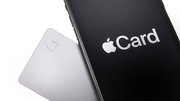News
Concern over counterfeit euros grows in Germany
May 6, 2004
HAMBURG, Germany - In Germany's biggest state, North Rhine Westphalia, bank customers have claimed in 26 cases over the past two years that a counterfeit bill came out of an ATM, said state police spokesman Frederick Holtkamp in an Expaticareport.
"We can't prove it rock-solid, but we can't rule it out either," he said. All claims were investigated, he said.
(See related story German ATMs dispense fake euros)
German banks have agreed to send cash to branch offices of Germany's central bank, which has automated testing machinery that can scan millions of notes a day to detect counterfeits. But the 24-hour ATMs are often restocked by armored transport companies that, like banks, have an interest in saving the cost of an extra trip.
"There's a certain likelihood that there are some banks that don't check the notes," Holtkamp said.
According to the European Central Bank (ECB) 551,287 counterfeit euro banknotes were detected in the eurozone last year, the second year that euros were in circulation. Of that number, 321,623 were in the 50-euro denomination commonly issued from ATMs.
In its annual report, the Frankfurt-based bank said hardly any were "good quality" forgeries.
Under German law, anybody who finds a counterfeit in their wallet must hand it in to the police without compensation. If the money came from a bank, the customer must then persuade the bank to hand over a genuine replacement note, according to the Expatica report.
"It's very hard to prove," said Holtkamp. Banks that used the Bundesbank (central bank) testing service could deny issuing a counterfeit. But there have been cases where banks had replaced notes "as an exception," he said.













